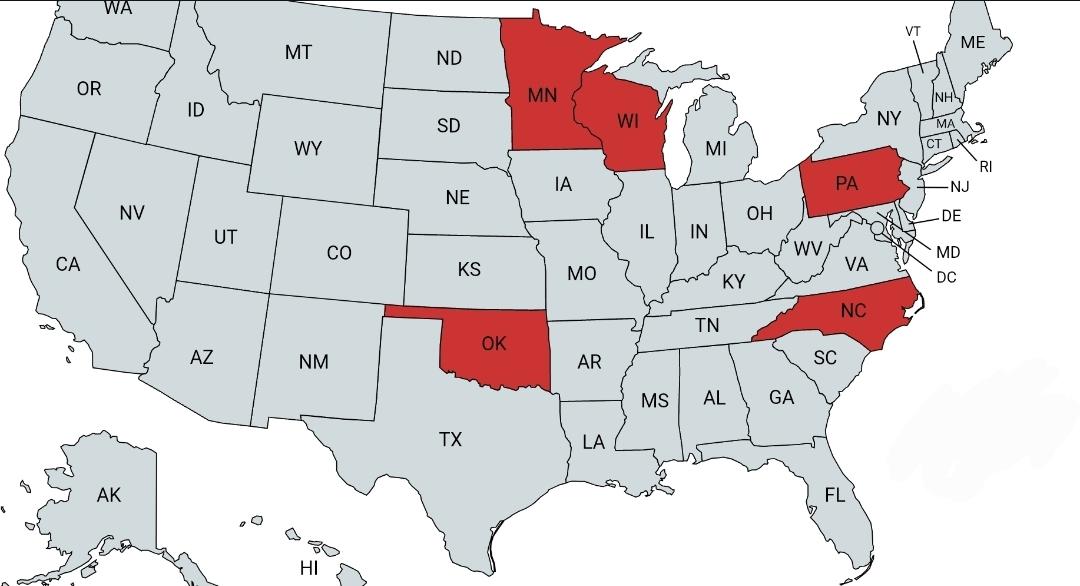Map of States that Prohibit Fortune Telling


Alex Cartwright
Senior Cartographer & GIS Specialist
Alex Cartwright is a renowned cartographer and geographic information systems specialist with over 15 years of experience in spatial analysis and data...
Geographic Analysis
What This Map Shows
This map illustrates the states in the United States that have explicit laws prohibiting the practice of fortune telling. It provides a clear visual representation of the geographical landscape of these restrictions, highlighting locations where fortune telling, in various forms, is banned or regulated. Understanding these regulations can shed light on cultural attitudes towards mystical practices and the legal frameworks that govern them.
Deep Dive into Fortune Telling Laws
Fortune telling encompasses a range of practices, including palmistry, tarot reading, clairvoyance, and other forms of divination. The legality of these practices varies significantly across the United States. Interestingly, while some states allow fortune telling under specific conditions, others enforce strict prohibitions. For instance, Minnesota explicitly prohibits fortune telling through state law, reflecting a cautious approach towards these mystical arts. Similarly, North Carolina has a broader ban that includes palmistry and clairvoyance, indicating a more comprehensive view of what constitutes fortune telling.
The origins of these laws often trace back to historical concerns about fraud and exploitation. For example, Pennsylvania's 1861 law makes it a misdemeanor to pretend to tell fortunes for gain, showcasing a long-standing skepticism regarding the authenticity of fortune telling practices. This historical context is crucial in understanding why certain states have chosen to regulate or outright ban these activities.
Oklahoma and Wisconsin also maintain statewide prohibitions, emphasizing a regional tendency towards skepticism about these practices. In states like these, the legal framework may be influenced by cultural attitudes that view fortune telling as deceptive or fraudulent. This brings us to a fascinating question: Why do some states embrace these mystical practices while others reject them outright?
The answer lies in a complex interplay of cultural, religious, and historical factors. In some regions, particularly those with a strong conservative or religious background, fortune telling may be viewed as incompatible with societal values. Conversely, states with more liberal attitudes may have a more permissive approach, allowing for a variety of mystical practices to flourish.
Regional Analysis
Analyzing the map reveals distinct regional patterns in the prohibition of fortune telling. For example, the Midwest, which includes states like Minnesota and Wisconsin, tends to have stricter laws compared to the West Coast, where fortune telling is generally more accepted. This regional divergence can be attributed to historical migration patterns, local cultural influences, and differing religious beliefs.
In the South, North Carolina's comprehensive ban indicates a regional skepticism that might be shared with neighboring states. However, states like Florida and Texas, which border the Gulf and have more diverse populations, tend to be more lenient towards fortune telling. This suggests that cultural diversity and exposure to various belief systems can influence the legal landscape regarding mystical practices.
Interestingly, states like Pennsylvania, with its historical laws against fortune telling, highlight the lingering impact of past societal concerns. The legal framework in these areas often reflects a community's desire to protect its members from potential fraud, suggesting that fears of exploitation have shaped the current landscape of fortune telling regulations.
Significance and Impact
The prohibition of fortune telling in certain states carries significant implications for practitioners and those who seek their services. For individuals who view fortune telling as a valuable tool for personal insight or guidance, these laws can be stifling. Moreover, the legal restrictions can push these practices underground, leading to a lack of oversight and potentially exposing individuals to unregulated and fraudulent practices.
As society evolves and attitudes towards spirituality and mysticism shift, it will be interesting to see how these laws change. Current trends indicate a growing acceptance of alternative spiritual practices, suggesting that some states might reconsider their stance on fortune telling in the future. The dialogue surrounding these laws invites broader questions about personal freedom, the role of spirituality in modern society, and the balance between protection and prohibition.
In conclusion, understanding the geography of fortune telling laws not only reveals the legal landscape across the United States but also reflects deeper cultural attitudes towards mysticism and spirituality. As we continue to observe shifts in societal values, the map of states that prohibit fortune telling may well evolve, reflecting a changing relationship between law, culture, and belief.
Visualization Details
- Published
- October 13, 2025
- Views
- 36
Comments
Loading comments...